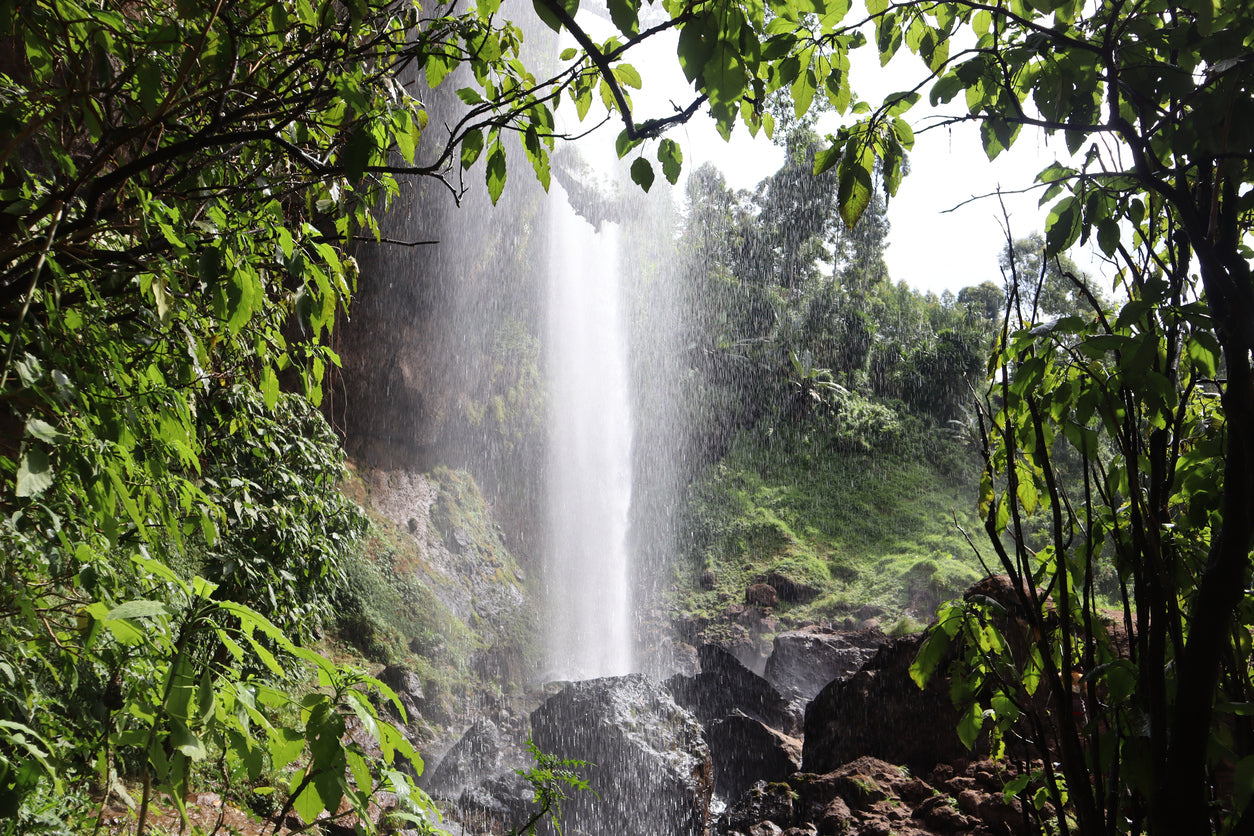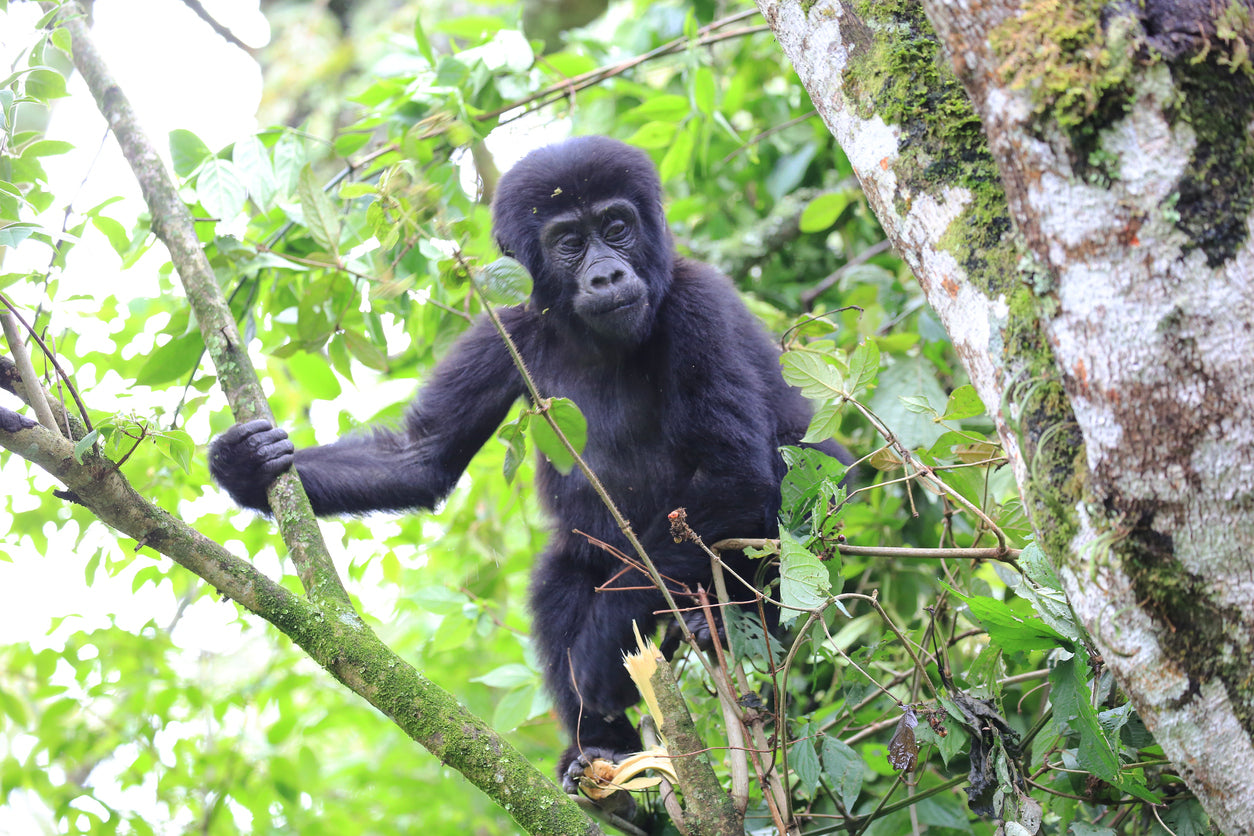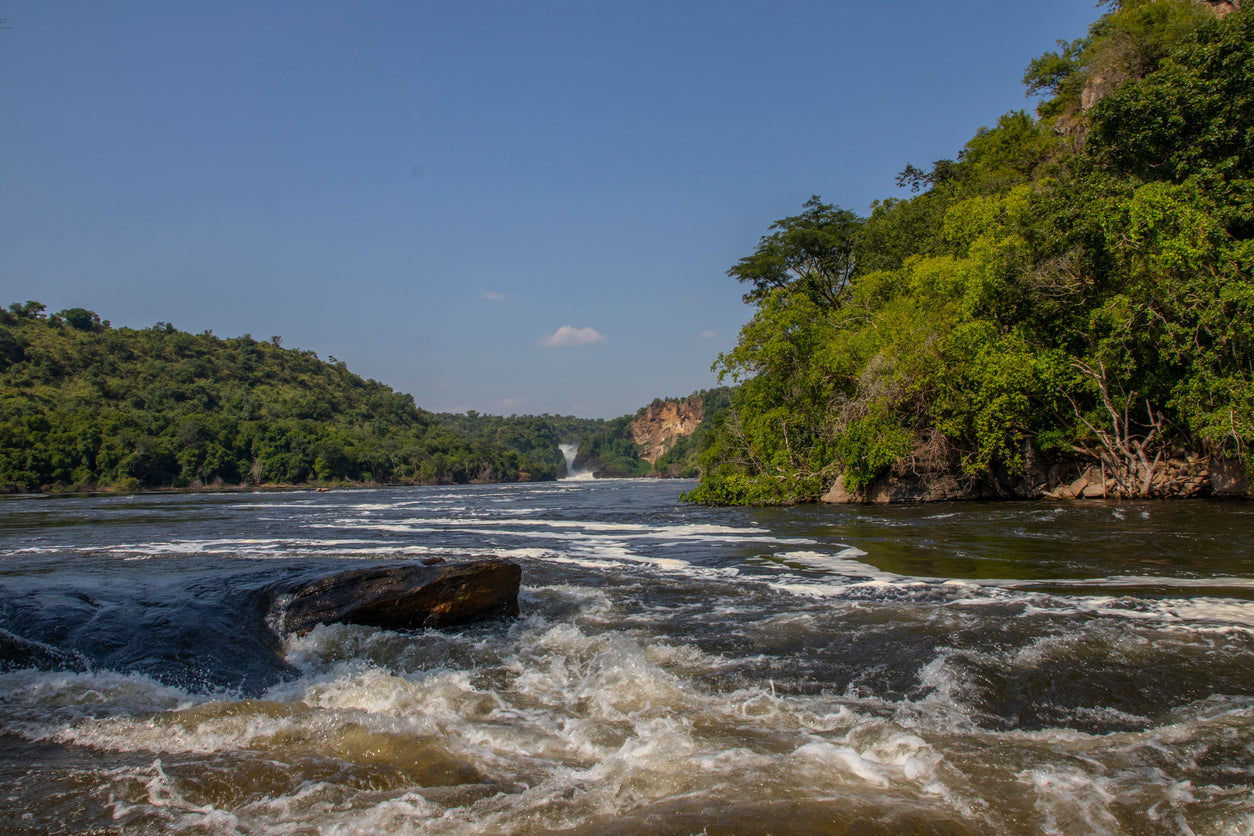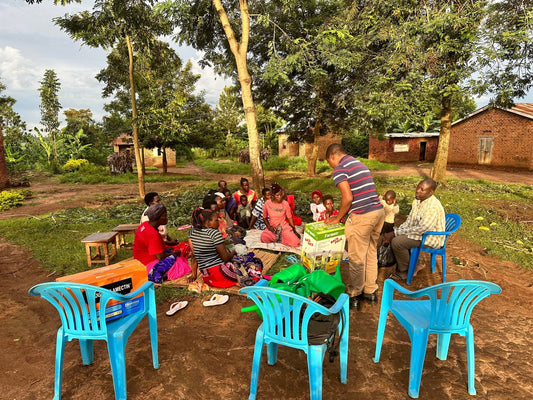Tastes great and gives back - love brands that find a way to do that
MAD! Uganda
Discover Ugandan coffee, community and culture...
But first, take a moment to enjoy the wonderful and talented Hyperkids Africa, a non-profit dance group, that we believe capture the essence of Uganda! Their videos have gone global, as they look to raise donations that go to support vulnerable children.
Ugandan Coffee
Coffee growing in Uganda has a storied history that dates back to the early 1900s when large-scale Robusta cultivation was introduced, leveraging the country's favourable climate and soils to establish coffee as a key economic driver.
Since then, coffee development in Uganda has evolved significantly, with the expansion of Arabica cultivation in the mountainous regions, adoption of sustainable farming practices, and growth in the specialty coffee market enhancing both the quality and global reputation of Ugandan coffee.

Eastern Uganda
Bugisu
Nestled in the foothills of Mount Elgon and encircling the picturesque Sipi Falls, this region is celebrated for its outstanding specialty Arabica coffee. Blessed with volcanic soil, the ideal altitude range of 1,500-2,300 meters above sea level, and a perfect climate, it provides all the essential elements for producing world-class coffee.
The steep slopes and undeveloped infrastructure, whilst providing challenges to farmers, give this region a uniqueness and allure. These natural conditions demand skilled, attentive cultivation practices, ensuring that each bean embodies the essence of its natural, beautiful surroundings.
In this vibrant region, you will find cherished varieties like Kent, Typica, SL-14, and SL-28. The main crop is harvested from October to March, with a secondary "Fly Crop" from May to July, offering year-round bursts of exquisite flavors that are as rich and varied as the landscape itself. This region's coffee not only boasts a unique profile but also tells a story of resilience and exceptional care in every cup.

Western Uganda
Rwenzori
Located in the majestic Rwenzori Mountains, often referred to as the "Mountains of the Moon" and home to the Mountain Gorilla! This region boasts an exceptional environment for cultivating specialty Arabica coffee, with rich, organic soils and the ideal altitudes ranging from 1,200 to 2,200 meters above sea level, which together create a prime setting for coffee production.
However, the Rwenzori coffee growers also face unique challenges, including rugged terrain and limited accessibility, which can complicate farming and harvesting activities. These difficulties, however, contribute to the exclusivity and distinctiveness of the coffee produced here.
In the Rwenzori region, you'll typically find coffee varieties such as Kent, Typica, SL-14, SL-28 and native Robusta. These varieties thrive under the local conditions and contribute to the area's reputation for high-quality coffee. The main harvest period extends from April to July, complemented by a smaller harvest from October to January, reflecting the unique climatic patterns of the region.

Central Uganda
Best of the Rest
While coffee is found pretty much throughout Uganda, grown in peoples gardens, there are two other notable regions;
West Nile
In the North West of Uganda, boardering the Democratic Republic of Congo is another prominent coffee growing region. You will find Arabica closer to Lake Albert and on the banks of the Nile, with Robusta dominating further north.
Here, you tend to find the Kent, Typica, SL-14, SL-28 and native Robusta varieties, grown at an altitude of 1,450-1,800 meters above sea level, with a Main Harvest from October to January and Fly Crop, April to June.
Central Lowlands
Robusta grows throughout much of the central region of Uganda and around the Lake Victoria Basin, even stretching to the "Source of the Nile".
They grow native Robusta and Tuzza, which is a disease resistant crop that can be grown at lower altitudes. Here we find production to be around 1200-1500 meters above sea level, with their Main Harvest being November to February and Fly Crop, May to August.
Sustainable Coffee Farming
Coffee production in Uganda is mostly grown by small-hold farmers on rain-fed plots, less than one acre in size, intercropped with banana and other food crops and surrounded by livestock, emphasising ecological balance. Methods like shade-growing, where coffee is planted under native trees to enhance soil health and biodiversity, create carbon capture. Ugandan emits the least amount of carbon across any major coffee producing nation.
This approach not only conserves water and reduces erosion but also minimizes the need for chemical fertilizers and pesticides, promoting a healthier environment and coffee!
Additionally, many Ugandan coffee farmers participate in fair trade practices, ensuring economic sustainability by securing better prices and improving the livelihoods of local communities, making the industry both environmentally and socially sustainable.
About Uganda
Discovery why Ugandan has been called The Pearl of Africa!

Our Story
From being frustrated with his corporate job in a small flat in London, to the rolling hills and coffee gardens of Uganda. Find out how MAD! Coffee started and how our Founders journey, underpins everything that we do.
Find our more...
-
MAD! Mission
Read more...Our mission is to make Ugandan coffee the No. 1 choice of coffee in the UK, have some fun doing it... and most importantly, make a difference to our MAD! Coffee drinkers, the communities across Uganda and our Planet.
-
About us
Read moreWe focus on quality, sustainability, and ethical practices to offer the finest single-origin and blended coffees from Uganda. We also carefully select and bundle a range of home barista and outdoor brewing equipment.





